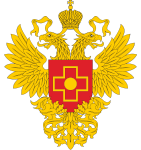
ORIGINAL RESEARCH
In vitro assessment of immunogenicity in chondrocytes obtained from the B2M knockout induced pluripotent stem cells
1 Lopukhin Federal Research and Clinical Center of Physical-Chemical Medicine of the Federal Medical Biological Agency, Moscow, Russia
2 Koltzov Institute of Developmental Biology of Russian Academy of Sciences, Moscow, Russia
Correspondence should be addressed: Anna A. Barinova
Malaya Pirogovskaya, 1а, 119435, Moscow, Russia; ur.liam@la.anna.avonirab
Funding: chondrocyte-like cells were obtained from iPSCs within the framework of the State Assignment #122032300191-2 “Organoid-22”. Immunocytochemical and PCR-based assessment of chondrogenic markers in the iPSC-derived chondrocytes, as well as assessment of immunogenicity of these chondrocyte-like cells were conducted within the framework of the RSF project #22-15-00250 “Comparison of chondrogenic potential of the cartilage tissue obtained using primary chondrocyte culture and using differentiated derivatives of induced pluripotent stem cells”.
Acknowledgements: the authors express their gratitude to M. Bogomyakova, L. Belikova, Laboratory of Cell Biology, Lopukhin Federal Research and Clinical Center of Physical-Chemical Medicine of FMBA of Russia, for assistance in planning and conducting the experiment.
Author contribution: Barinova AA — immunological tests, manuscript preparation and writing, search for literature; Pikina AS — collecting chondrocytes from the patient and iPSC differentiation into chondrocyte-like cells, immunohistochemistry; Golubinskaya PA — search for literature; Ruchko ES — conducting PCR; Eremeev AV — manuscript editing.
Compliance with ethical standards: the study was approved by the Ethics Committee of the Lopukhin Federal Research and Clinical Center of PhysicalChemical Medicine of FMBA of Russia (protocol № 2019/02 dated 09 April 2019).
Today, the cell-based technologies are one of the instruments used for the cartilage tissue repair. Creation of a universal hypoimmunogenic cartilage tissue graft from the differentiated derivatives of induced pluripotent stem cells (iPSCs) might solve the problem of the lack of the cartilage cell product. However, currently there is little data on immunogenicity of such tissue-engineered preparations. The study was aimed to create a cartilage implant from the differentiated derivatives of the B2M-deficient iPSCs and assess its immunogenicity. The previously developed protocol was used to ensure differentiation of both wild-type and B2M knockout iPSCs into chondrocyte-like cells. After quality control of the resulting cell lines by conducting polymerase chain reaction and immunocytochemical assessment, the resulting cell lines were co-cultured with the peripheral blood mononuclear cells of a healthy donor. When co-cultivation was over, activation and degranulation of CD8+ T cells was assessed by flow cytometry analysis based on the CD69 and CD107a expression on the cell surface, respectively. The iPSC-derived chondrocytes expressed the cartilage tissue markers. Flow cytometry analysis revealed no substantial differences in immunogenicity between the derivatives of wild-type and B2M knockout iPSCs, as well as from the cartilage tissue cells of a healthy donor. Immunogenicity of chondrocyte-like cells was higher than that of hypoimmunogenic non-edited iPSCs. The B2M knockout iPSCs demonstrated a trend towards greater activation of CD8+ T cells. Thus, the B2M knockout in the iPSC-derived chondrocytes had no significant effect on the tissue immunogenicity. It is necessary to further edit the genes encoding MHC II and CD47 to obtain a less immunogenic product.
Keywords: chondrocytes, regenerative medicine, chondrogenesis, iPSCs, immunogenicity